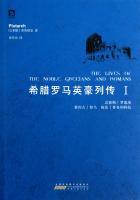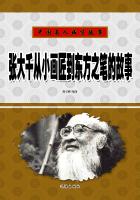When England entered the war, L。 transformed his ch teau in Devonshire into a hospital and, to safeguard the children of my school, who were of all nationalities, he embarked them all for America。Augustin and Elizabeth, who were with the school in New York, sent me frequent telegrams to join them, so at last I decided to go。
André took me to Liverpool and put me on board a great Cunard liner bound for New York。
I was so sad and tired that all the way over I never left my cabin except at night, when I would emerge on deck while all the other passengers were sleeping, and when Augustin and Elizabeth met me in New York they were shocked to see how changed and ill I was。
I found my school installed in a villa—a happy band of war refugees。 Taking a huge studio on Fourth Avenue and Twenty?third Street, I hung it about with my blue curtains, and we began work anew。
Coming from bleeding, heroic France, I was indignant at the apparent indifference of America to the war, and one night, after a performance at the Metropolitan Opera House, I folded my red shawl around me and improvised the“Marseillaise。”It was a call to the boys of America to rise and protect the highest civilisation of our epoch—that culture which has come to the world through France。 Thenext morning the newspapers were enthusiastic。One of them said:
“Miss Isadora Duncan earned a remarkable ovation at the close of her programme with an impassioned rendition of the‘Marseillaise,'when the audience stood and cheered her for several minutes……Her exalted poses were imitative of the classic fgures on the Arc de Triomphe in Paris。 Her shoulders were bare, and also one side, to the waist?line, in one pose, as she thrilled the spectators with representation of the beautiful figures(of Rude)on the famous arch。The audience burst into cheers and bravas at the living representation of noble art。”
My studio soon became a rendezvous for all the poets and artists。 From this moment my courage came back, and, finding the newly built Century Theatre free, I leased it for the season and proceeded to create there my Dionysion。
But the snobbish shape of this theatre angered me。 In order to transform it into a Greek theatre, I removed all the orchestra seats, and placed there a blue carpet on which the chorus could circulate。I covered the ugly boxes with great blue curtains, and with a troupe of thirty?five actors, eighty musicians, and a hundred singing voices, put on the tragedy of Oedipus, with my brother Augustin in the title?r?le and my school and myself as the chorus。
My audience consisted mostly of people from the East Side who, by the way, are among the real lovers of Art in America today。 The appreciation of the East Side sotouched me that I went over there with my entire school and an orchestra, and gave a free performance in the Yiddish Theatre, and, if I had had the means, I would have remained there dancing for these people whose very soul is made for music and poetry。But, alas!this great venture of mine proved a costly experiment, and landed me in complete bankruptcy。Appealing to some of New York's millionaires, I only received the answer:“But why do you wish to give representations of Greek tragedy?”
At that moment all New York had the“jazz”dance craze。 Women and men of the best society, old and young, spent their time in the huge salons of such hotels as the Biltmore, dancing the fox?trot to the barbarous yaps and cries of the negro orchestra。I was invited to one or two gala dances at the time, and could not restrain my indignation that this should be going on while France was bleeding and needing the help of America。In fact the whole atmosphere in 1915 disgusted me, and I determined to return with my school to Europe。
But now I lacked the wherewithal to pay for our tickets。 I had reserved berths on the return boat, the Dante Alighieri, but had no money to pay for them。Three hours before the boat was to sail, I still lacked the necessary funds, when there entered my studio a young American woman, quietly dressed, who asked if we were leaving for Europe that day。
“You see,”I said, pointing to the children in their travelling cloaks,“we are all ready, but we have not yetfound the money to complete payment for the tickets。”
“How much do you need?”she asked。
“About two thousand dollars,”I replied, at which this extraordinary young woman took out a pocket?book, counted out two notes of a thousand dollars each, and placed them on the table, saying:
“I am very delighted to help you in this small matter。”
I looked in amazement at this stranger, whom I had never seen before, and who, without asking for any acknowledgment even, placed this large sum of money at my disposal。 I could only imagine that she must be some unknown millionaire。But afterwards I found that this was not true。Indeed, in order to place this money at my disposal she had sold out her entire capital of stocks and bonds the day before。
With many others, she came to see us off at the boat。 Her name was Ruth—Ruth who said:“Thy people shall be my people;thy ways as my ways。”And such a Ruth she has been to me ever since。
Having been forbidden any further manifestations of the“Marseillaise”in New York, we all stood on the deck, each child with a little French fag hidden up its sleeve, and I had given the word that when the whistle blew and the ship left the shore, we should all wave our fags and sing the“Marseillaise,”which we did with great joy to ourselves and to the great trepidation of the officials on the dock。
My friend Mary, who had come to see me of, could not, at the last moment, bear to part from me, and, withoutluggage or a passport, she leapt on to the deck and joined us in singing, and said,“I am coming with you。”
And so, to the singing of the“Marseillaise,”we left the rich, pleasure?loving America of 1915 and set sail for Italy, with my now nomadic school。We reached Naples on a day of great enthusiasm。Italy had decided to enter the war。We were all delighted to be back, and had a charming fête in the country, and I remember that I addressed a crowd of staring peasants and working people surrounding us:“Thank God for your beautiful country and don’t envy America。Here, in your wonderful land of blue skies and vines and olive?trees, you are richer than any American millionaire。”
In Naples we had a discussion as to our next destination。 I wished very much to go to Greece, with the idea of camping on Kopanos until the end of the war。But this idea frightened my elder pupils, as they were travelling on German passports, so I decided to seek refuge in Switzerland, where it would be possible to give a series of performances。
For this purpose we went to Zurich。 Stopping at the H?tel Bar du Lac was the daughter of a well?known American millionaire。I thought this a wonderful opportunity to interest her in my school, and one afternoon had the children dance for her on the lawn。They were such a lovely sight that I thought surely she would be touched, but when I approached her on the subject of helping my school, she replied,“Yes, they may be lovely, but they do not interest me。I am only interested in the analysis of myown soul。”She had been studying for years with Dr。Jung, the disciple of the celebrated Freud, and she spent hours every day writing down the dreams she had had the night before。
That summer, in order to be near my pupils, I was at the H?tel Beau Rivage in Ouchy。I had pretty rooms with a balcony on the lake。I took a sort of huge barrack which had served as a restaurant, and, hanging around it the never?failing inspiration of my blue curtains, transformed it into a temple where I taught the children, and danced every afternoon and evening。
One day we had the joy to receive Weingartner and his wife, and danced for him all the afternoon and evening Gluck, Mozart, Beethoven, and Schubert。
From my balcony I used to see every morning assembled on another large balcony overlooking the lake a group of beautiful boys in shining silk kimonos。 They used to smile at me from their balcony, and one night they invited me to supper。I found them charming and gifted boys—war refugees。
On other nights they took me in a motor?boat on the romantic Lake Leman。The boat was effervescent with champagne。We generally landed at four o’clock in the morning at Montreux, where a mysterious Italian Count gave a four o’clock supper。This handsome, but rather hard, macabre beauty slept all day and only rose at night。Often he would take out of his pocket a little silver syringe, and everyone pretended not to notice while he deliberatelyinjected it in his white thin arm。Afterwards his wit and gaiety knew no bounds, but they said he endured horrible suferings in the daytime。
The amusing society of these charming youths diverted me in my otherwise sad and lonely state, but their evident indifference to feminine charms rather piqued my pride。 I decided to put my powers to the test, and succeeded so well that one night, accompanied only by a young American friend, I started of with the leader of the band in a superb Mercédès car。It was a wonderful night。We sped along the shores of Lake Leman, flew past Montreux。I called out“Farther, farther,”until fnally, at dawn, we found ourselves at Viege。Still I cried“Farther, farther,”and we sped up through the eternal snows and over the St。Gothard Pass。
I laughed to think of my friend's charming band of young beauties when they found to their consternation in the morning that their Sultan was gone, and with one of the abhorred sex, and I exerted all my powers of seduction, and soon we were descending into Italy。 We did not stop until we arrived in Rome, and from Rome we went on to Naples。Then, when I glimpsed the sea, I had a burning desire to see Athens again。
We took a little Italian steamer, and one morning I found myself again ascending the white marble steps of the Propylaea, toward the temple of the divine and wise Athena。 I remembered so vididly the last time I was there, and could not help feeling ashamed when I thought how terribly I had lapsed from wisdom and harmony in theinterval, and, alack!with what a price of suffering I had paid for the passion that had entranced me。
The modern town was in a tumult。 The fall of Venezelos was proclaimed on the day after our arrival, and it was thought probable that the Royal Family would be on the side of the Kaiser。That night I gave a charming dinner?party, my guests including the Secretary of the King, M。Melas。In the centre of the table I had heaped red roses, and under them was hidden a little gramophone。In the same room was a group of high officials from Berlin。Suddenly we heard from their table the toast,“Hoch der Kaiser,”at which I brushed aside the roses and started my gramophone, which began to play“The Marseillaise。”At the same moment I proposed the toast,“Vive la France。”
The King's secretary looked somewhat alarmed, but was really delighted, as he warmly espoused the cause of the Allies。
By this time a large crowd had assembled in the square before our open windows。 Holding high above my head the picture of Venezelos and bidding my young American friend follow me with the gramophone, always bravely playing the“Marseillaise,”we proceeded to the centre of the square where, to the music of the little instrument and the singing of the now enthusiastic crowd, I danced the Hymn of France。Afterwards I harangued the crowd:
“You have a second Pericles, the great Venezelos—why do you allow him to be troubled?Why do you not follow him?He only will lead Greece to its greatness。”
We then formed a procession to the house of Venezelos and, standing under his windows, sang alternately the Greek Hymn and the“Marseillaise,”until soldiers with fxed bayonets unkindly dispersed our meeting。
After this episode, which had really delighted me, we took the boat back to Naples, and contined our journey to Ouchy。
From then on, until the end of the war, I made desperate efforts to keep my school together, thinking that the war would end and we should be able to return to Bellevue。 But the war went on and I was obliged to borrow money from moneylenders at 50 per cent to pay for the upkeep of the school in Switzerland。
In 1916,for this purpose, I accepted a contract to go to South America, and set sail for Buenos Aires。
As I advance in these memoirs, I realise more and more the impossibility of writing one's life—or, rather, the lives of all the different people I have been。 Incidents which seemed to me to last a liftetime have taken only a few pages;intervals that seemed thousands of years of sufering and pain, and through which, in sheer self?defence, in order to go on living, I emerged an entirely diferent person, do not appear at all long here。I often ask myself desperately:“What reader is going to be able to clothe with flesh the skeleton that I have presented?”I am trying to write down the truth, but the truth runs away and hides from me。How find the truth?If I were a writer, and had written of my life twenty novels or so, it would be nearer the truth。And then, after I had written these novels, I should have to write the story of the artist, which would be a story quite apart from all the others。For my artist life and thoughts of Art have grown quite aloof, and grow still, like a separate organism, seemingly quite independent of what I call my Will。
Still here I am, trying to write the truth of all that happened to me, and I greatly fear that it will turn out an awful mess。 But there you are—I have begun the impossible task of putting this record of my life on paper, and will go on with it to the end, although I can already hear the voices of all the so?called good women of the world saying:“A most disgraceful history。”“All her misfortunes are only a just requital of her sins。”But I am not conscious of having sinned。Nietzsche says,“Woman is a mirror,”and I have only reflected and reacted to the people and forces that have seized me and, like the heroines of the Metamorphoses of Ovid, have changed form and character according to the decree of the immortal gods。
As the boat stopped at New York, Augustin, who did not like the idea of my travelling alone so far in wartime, joined me, and his company was a great comfort to me。 On the boat there were also some young boxers, headed by Ted Lewis, who used to get up at six o'clock every morning to train, and then swim in the big salt?water swimming?bath on board。I trained with them in the morning and danced for them at night, so the voyage was very gay and did not seem at all long。Maurice Dumesnil, the pianist, accompaned me on this voyage。
Bahia was my first experience of a semi?tropical town, and it seemed very soft, green, and wet。Although it poured continually, the women, walking along the streets in calico dresses soaked through and cling to their forms, appeared to be quite oblivious to the rain, and did not seem to care whether they were wet or dry。This was also the frst time that I had seen the mixture of black and white races taken with nonchalance。At one restaurant where we lunched there was a black man at a table with a white girl, and at another table a white man with a black girl。In the small church were women carrying little naked mulatto babies to be christened。
In every garden bloomed the red hibiscus, and the whole town of Bahia teemed with the promiscuous love of black and white races。 In some quarters of the town black, white, and yellow women leaned lazily out of the windows of the houses of ill?fame, and seemed here to have none of the haggard or furtive looks which usually characterise the prostitutes of large cities。
A few nights after our arrival in Buenos Aires, we went to a students'cabaret。 It was the usual long, low?ceilinged, very smoky room, overcrowded with dark young men interlaced with equally brunette girls, all dancing the tango。I had never danced the tango, but the young Argentine who was our cicerone persuaded me to try。From my first timid steps I felt my pulses respond to the enticing, languorousrhythm of this voluptuous dance, sweet as a long caress, intoxicating as love under southern skies, cruel and dangerous as the allurement of a tropical forest。All this I felt as the arm of this dark?eyed youth guided me with confdential pressure and now and then thrust the glance of his bold eyes into mine。
I was suddenly recognised and surrounded by the students, who explained that it was the night of the celebration of the Freedom of Argentina, and they begged me to dance their Hymn。 As I always love to please students, I consented, and, after hearing the translation of the words of the Argentine Hymn, I wrapped the Argentine fag about me and endeavoured to represent for them the sufering of their once enslaved colony and it freeing itself from the tyrant。My success was electric。The students, who had never seen this sort of dance before, shouted with enthusiasm, and asked me to repeat the Hymn over and over again while they sang。
I returned to the hotel flushed with my success and delighted with Buenos Aires, but, alas!I rejoiced too soon。 The next morning my manager was furious at reading a sensational account of my performance in the papers, and informed me that according to law he considered my contract broken。All the best families in Buenos Aires were withdrawing their subscriptions, and would boycott my performances, and thus the soirée which had so delighted me was the ruin of my Buenos Aires tournée。
Art gives form and harmony to what in life is chaos and discord。 A good novel works up artistically to a certainclimax, and has no anti?climax。Love in Art ends, as for Isolde, with a tragic and beautiful closing note, but life is full of anticlimaxes, and a love?affair in real life generally ends with a discord, and that in the very middle of a musical phrase, leaving a strident, clamorous dissonance。And often in real life a love?affair after its culmination revives again only to die a miserable death on the tomb of fnancial reclamations and lawyers’fees。
I had started on this tournée in the hope of obtaining sufcient funds to keep my school during the war。Imagine my consternation on receiving a cable from Switzerland to say that my cable sending money had, owing to war restrictions, been held up。As the directress of the boarding school in which I had left the girls was unable to keep them without payment, they were in danger of being turned out of doors。With my usual impulsiveness, I insisted that Augustin should start at once for Geneva with the necessary funds to save my pupils—not realising that this left me without enough money to pay the hotel bill, and, as my irate manager had departed for Chili with a comic opera troupe, my pianist, Dumesnil, and I were left stranded in Buenos Aires。
The audiences were cold, heavy, unappreciative。 In fact, the only success I had in Buenos Aires was the night in the cabaret when I danced the Hymn of Freedom。We were obliged to leave our trunks at the hotel and continue our journey to Montevideo。Fortunately, my dancing tunics have no value with hotel proprietors!
And at Montevideo we found the audiences exactly the opposite to the Argentines—wild with enthusiasm—so we were able to continue our tournée to Rio de Janeiro。We arrived there without money, without baggage, but the director of the Municipal Theatre was so kind as immediately to book performances, and here I found audiences so intelligent, so quick and responsive, as to bring out the best in any artist who appeared before them。
Here I met the poet, Jean de Rio, who was beloved by all the young men of Rio, for every youth in Rio is a poet himself。 When we walked together we were followed by all these young men crying,“Viva Jean de Rio!Viva Isadora!”
Leaving Dumesnil in Rio, for he had made such a sensation there that he did not wish to leave, I returned to New York。 The journey was sad and lonely, for I was anxious about my school。Some of the boxers also who had gone out with me came back on the same ship as stewards, having had no success and made no money。
Among the passengers was an American who was always drunk, and every night at dinner he would say“Take this bottle of Pommery 1911 to the table of Isadora Duncan,”to the consternation of everyone。
When we reached New York, no one came to meet me, as my cable had not been delivered owing to war difculties。 By chance I called up a great friend, Arnold Genthe。He is not only a genius but a wizard。He had left painting forphotography, but this photography was most weird and magical。It is true he pointed his camera at people and took their photographs, but the pictures were never photographs of his sitters but his hypnotic imagination of them。He has taken many pictures of me which are not representations of my physical being, but representations of conditions of my soul, and one of them is my very soul indeed。
He had always been my greatest friend, so, finding myself on the dock alone, I called him up on the telephone。 What was my surprise at being answered by a familiar voice, but not the voice of Arnold。It was Lohengrin, who, by a strange coincidence, had just gone in to see Genthe that morning。When he heard that I was alone at the docks without funds and without friends, he at once said he would come to my aid。
Some minutes later he arrived。 When I saw his tall, commanding figure again I bad a curious feeling of confidence and safety, and I was as delighted to see him as he was to see me。
As a parenthesis, you may notice in this autobiography that I have always been faithful to my loves, and in fact would probably never have left any of them if they had been faithful to me。 For just as I once loved them, I love them still and for ever。If I have parted from so many, I can only blame the fickleness of men and the cruelty of Fate。
And so, after these disastrous voyages, I was rejoiced to see my Lohengrin once more coming to the rescue。 With his customary commanding manner, he soon released myluggage from the Customs and then we went to Genthe's studio, and all three went out to lunch on Riverside Drive, overlooking Grant's tomb。
We were all delighted to be together again, and drank much champagne, and I felt that my return to New York was of happy augury。 L。was in one of his kindest and most generous moods。After lunch he rushed down and engaged the Metropolitan Opera House, and spent the afternoon and evening sending out invitations to every artist for a great free gala performance。This performance was one of the most beautiful experiences of my life。There were present all the artists, actors, and musicians of New York, and I had the joy of dancing without the oppression of the box office。Of course, at the close of the performance, as I always did during the war, I ended with the“Marseillaise,”and received a tremendous ovation for France and the Allies。
I told L。 how I had sent Augustin to Geneva, and my anxiety about the school, and, with his extraordinary generosity, he cabled the funds necessary to bring the school over to New York。But, alas!for part of the school the money was too late。All of the little pupils had been claimed by their parents and taken home。This dispersing of the school to which I had sacrificed years of work cost me much pain, but I was somewhat comforted by the arrival of Augustin and the six elder children shortly afterwards。
L。 continued to be in the best and most generous moods, and there was nothing too good for the children or forme。He rented a great studio at the top of Madison Square Garden, where we worked every afternoon。In the morning he would take us for long motor drives by the Hudson。He gave gifts to everyone。In fact, for the time being life became wonderful through the magic power of money。
But, as the rigorous New York winter advanced, my health failed, and L。 suggested that I should take a trip to Cuba。He sent his secretary to accompany me。
I have the most delightful memories of Cuba。 L。's secretary was a young Scotchman and a poet。My health did not permit me to give any performances, but we spent three weeks in Havana driving along the coast, enjoying the picturesque surroundings。I remember one tragi?comic incident of our stay there。
About two kilometres from Havana there was an ancient leper house, surrounded by a high wall。 But the wall was not high enough to prevent us from seeing at times a mask of horror looking over it。The authorities realised the incongruity of this place next door to a fashionable winter resort, and decided to move it。But the lepers refused to go。They clung to the doors, to the walls, some got on to the roofs and clung there, and it was even rumoured that some of them had escaped into Havana and were hiding there。The removal of this leper house always seemed to me like a queer, uncanny play of Maeterlinck。
Another house where I visited was inhabited by a member of one of the oldest families who had a fancy for monkeys and gorillas。 The garden of the old house wasflled with cages in which this lady kept her pets。Her house was a point of interest to all visitors, whom she entertained with the most lavish hospitality, receiving her guests with a monkey on her shoulder and holding a gorilla by the hand。These were the tamest of her collection, but some were not so mild, and, as one passed their cages, they would shake the bars and utter shrieks and make faces。I asked if they were not dangerous, and she replied nonchalantly that, apart from getting out of their cages and killing a gardener now and then, they were quite safe。This information made me rather anxious, and I was glad when the time came to depart。
The strange part of the story is that this woman was very beautiful, with large expressive eyes, well read, and intelligent, and was wont to gather together in her house the brightest lights in the world of literature and art。 How, then, explain her fantastic affection for apes and gorillas?She told me that in her will she had left her entire collection of monkeys to the Pasteur Institute for experimental work in connection with cancer and tuberculosis, which seemed to me a peculiar form of showing post?mortem love。
I have another interesting recollection of Havana。 On a festival night, when all the cabarets and cafés were teeming with life, after our usual tour by the sea and the pampas land, we arrived at a typical Havana café,somewhere about three o’clock in the morning。Here we found the usual assortment of morphimaniacs, cocainists, opium smokers, alcoholists, and other derelicts of life。Taking our places ata small table in the low?ceilinged, dimly lit, smoky room, my attention was drawn to a white?faced, hallucinated?looking man, with cadaverous cheeks and ferocious eyes。With his long thin fngers he touched the keys of a piano, and to my astonishment there came forth Chopin’s Preludes, played with marvellous insight and genius。I listened for some time, then approached him, but he could only speak a few incoherent words。My movement had riveted the attention of the café upon me, and, realising that I was absolutely incognito, there came over me a fantastic desire to dance for this strange audience。Wrapping my cape about me, directing the pianist, I danced to the music of several of the Preludes。Gradually the drinkers in the little café lapsed into silence, and, as I continued to dance, not only did I gain their attention, but many of them were weeping。The pianist also awoke from his morphia trance and played as though inspired。
I continued to dance until the morning, and when I left they all embraced me, and I felt prouder than in any theatre, for this I knew to be the real proof of my talent, without the help of any impresario or fore?notices engaging public attention。
Soon after this my poet friend and I took the boat to Florida, and landed at Palm Beach。 From there I sent a telegram to Lohengrin, who joined us at the Breakers Hotel。
The most terrible part of a great sorrow is not the beginning, when the shock of grief throws one into a stateof exaltation which is almost an?sthetic in its efects, but afterwards, long afterwards, when people say,“Oh, she has got over it”—or“She is all right now, she outlived it”;when one is, perhaps, at what might be considered a merry dinner?party to feel Grief with one icy hand oppressing the heart, or clutching at one’s throat with the other burning claw—Ice and Fire, Hell and Despair, overcoming all—and, lifting the glass of champagne, one endeavours to stife this misery in whatever forgetfulness—possible or impossible。
This was the state I had now reached。 All my friends said:“She has forgotten;she has outlived,”whereas the sight of any little child who entered the room suddenly, calling“Mother,”stabbed by heart, twisted my whole being with such anguish that the brain could only cry out for Lethe, for Oblivion, in one form or another, and from this horrible sufering I aspired to create new life, to create Art。Ah, how I envy the resignation of those nuns who pray with pale lips, murmuring incessant prayers all through the night before the cofns of strangers。Such temperaments are the envy of the artist who revolts, who cries,“I will love, love, create joy, joy。”What a Hell!
L。 brought with him to Palm Beach the American poet, Percy McKaye, and, sitting all together on the verandah one one day, L。sketched out a plan for a future school according to my ideas, and informed me that he had bought the Madison Square Garden as a fitting ground?plan for the school。
Although enthusiastic about the plan as a whole, I was not in favour of starting so vast a project in the middle ofthe war, and it was this that fnally irritated L。 to such an extent that, with the same impulsiveness with which he had bought the Garden, he cancelled the sale upon our return to New York。
Percy McKaye had written a beautiful poem the year before after seeing the children dancing here。
A bomb has fallen over Notre Dame:
Germans have burned another Belgian town:
Russians quelled in the East:England in qualm:
I closed my eyes, and laid the paper down。
Grey ledge and moor?grass and pale bloom of light
By pale blue seas:
What laughter of a child world?sprite,
Sweet as the horns of lone October bees,
Shrills the faint shore with mellow, old delight?
What elves are these
In smocks grey?blue as sea and ledge。
Dancing upon the silvered edge
Of darkness—each ecstatic one
Making a happy orison,
With shining limbs, to the low sunken sun?
See:now they cease
Like nesting birds from fight:
Demure and debonair
They troop beside their hostess'chair
To make their bedtime courtesies:
“Spokoini Notchi!Gute Nacht!
Bonsoir!Bonsoir!Goodnight!”
What far?gleaned lives are these
Linked in one Holy Family of Art?
Dreams:dreams once Christ and Plato dreamed:
How fair their happy shades depart!
Dear God!How simple it all seemed
Till once again
Before my eyes the red type quivered:slain:
Ten thousand of the enemy。
Then laughter!Laughter from the ancient sea
Sang in the gloaming:Athens!Galilee!
And elfin voices called from the extinguished light:
“Spokoini Notchi!Gute Nacht!
Bonsoir!Bonsoir!Goodnight!”















